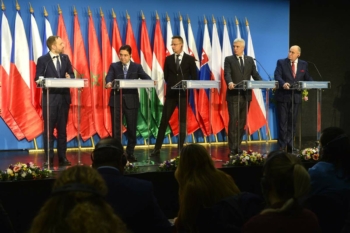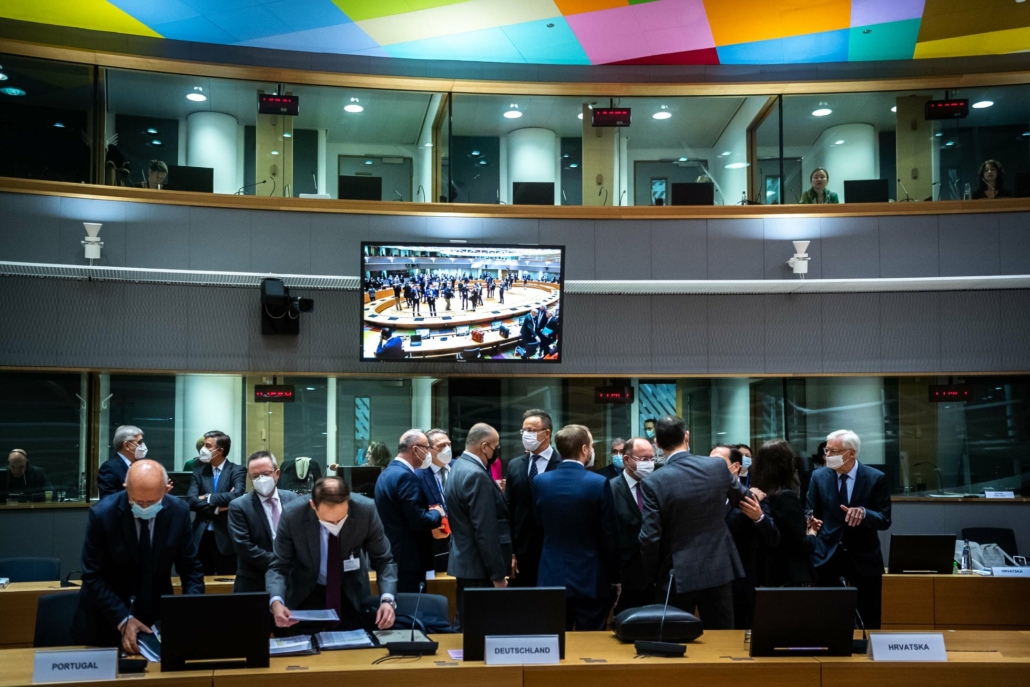Hungary calls for EU agreement with Africa to help population stay in place
The European Union should seek an agreement with Africa on ways to convince the population to stay where they are rather than find ways to come to Europe, Foreign Minister Péter Szijjártó said on Monday.
During a break of a meeting of the EU Foreign Affairs Council, Szijjarto reiterated Hungary’s standpoint that the EU should help Africa create the right conditions for the population to stay in place.
The minister complained, however, that the European Commission was currently in talks with 79 African, Caribbean and Pacific countries under the arrangements of the post-Cotonou negotiations about “what pro-migration deal to set up”.
“It is unacceptable to us that Brussels is ready to entertain yet more madness,” Szijjártó said. “We see it as very much against European interests and we will continue to raise our voice against it.”
He noted that in an effort to reduce migration pressure, Hungary has sent twenty soldiers to the EU mission in Mali, and will send 80 personnel to participate in the European military Takuba taskforce supporting the Malian army.
Additionally,
the government has launched tied-aid loan programmes with three African countries totalling 45 billion forints (EUR 120m), mainly in the area of water management, he said.
Under the arrangements of the Hungary Helps programme, sixty projects costing 4.5 billion forints have been carried out or are under way to help members of Christian communities stay in their homelands. Also, 1,400 Hungarian scholarships have been offered to students from 25 African countries, he said.
Hungary’s support to six countries fighting Covid with the supply of 1.5 million doses of vaccine also covers countries in Africa, he said.
Szijjártó said Europe was confronting the mistakes it had made in the area of energy security, resulting in the current energy supply crisis.
“It’s all too easy pointing a finger at Russia and the country’s president. Politically, this may wash in certain places. But if we want a long-term solution … we must be clear about the mistakes we have made,” he said.
Szijjártó said the issue of energy supply must not be “over-politicised”. “You can’t heat homes with political statements,” he added.
He said
the government’s energy policy was “pragmatic” and “rational” and guaranteed secure supplies for the next 15 years.
Asked about French President Emmanuel Macron’s visit to Budapest on Monday, Szijjártó underscored identical positons on major issues of strategic importance such as the protection of the EU’s external borders and the use of nuclear energy. He highlighted close cooperation in nuclear energy, space research and electric car manufacturing.
Commenting on the new German government taking office, Szijjarto expressed hope that bilateral cooperation could continue based on mutual respect.
On the topic of Ukraine, the foreign minister underlined Hungary’s support for Ukraine’s territorial integrity and sovereignty, adding, however, that while Hungary had made several friendly gestures “Kiev regularly enacts measures that seriously violate the rights of the Hungarian community”.

Read alsoV4, Morocco foreign ministers held talks in Budapest
please make a donation here
Hot news
What happened today in Hungary – 26 July, 2024
Drama: number of births in a 20-year low in Hungary
Yay or nay? – 6 odd Hungarian delicacies that make our skin crawl
Budapest tourism “exploded” this past weekend
Container transport in Budapest may stop: How will this affect Hungarian economy?
Minister: Hungary will protect its territory by every means possible





3 Comments
Translated: let’s do like our great mother Communist China, let’s exploit Africa in Africa.
Orbánistan really has become a Chinese protectorate.
Well Mario, considering that it was the West who exploited the shit out of Africa with Western companies exploiting the instability of the Democratic Republic of Congo to get precious minerals like Cobalt you cannot start complaining about China.
In fact, China has been doing a far better job than the West by actually focusing on building key infrastructure, instead of robbing key natural resources, in African countries (ex: Western oil companies using the Niger Delta to drill for oil while paying Nigeria and surrounding countries a minuscule amount to what they are receiving).
So yes, Hungary has a point about European and Western countries needing to own up to their mistakes and making sure that African countries actually benefit from Western investment instead of being exploited. Hungary is also correct to mention that to prevent migration from African countries, there needs to be solid investment that actually helps the countries instead of exploiting them.
Fun fact, it is believed that the CIA and the US were behind the death of Congolese leader, Patrice Émery Lumumba , who wanted to strengthen the independence of DRC (who gained independence shortly after WWII), by developing the country through its own natural resources and maintain DRC neutrality. He also wanted to build up the political institutions and economy which again also meant having the DRC control its own natural resources. Unfortunately, he was killed due to the fact that the US wanted the DRC’s key minerals (which are used to make laptops and phones).
So again, who has actually been more exploitative? The West or China? To me, it seems like Western countries have been far more exploitative than China with regard to Africa. Unfortunately, a lot of people like you Mario have been spoonfed by the Western media propaganda about China to distract the people from the harms that Western European countries and the US have done.
Although China is certainly not an innocent country (ex: its treatment of ethnic minorities and lack of freedom of expression). I am not buying into the Cold War mentality that the media wants to bring back again.
-Sincrely, a non-African